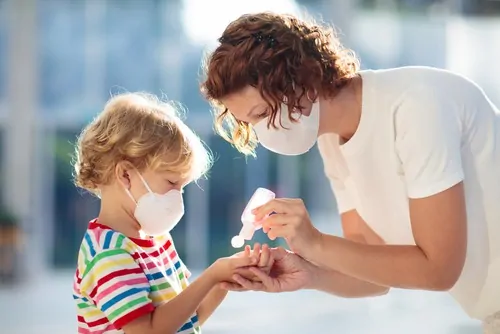
Facemasks are now a common thing in all of our lives. We see them hanging from rearview mirrors as we drive down the road, everyone in the grocery store is masked up, and they’re even starting to become a fashion statement to some. While facemasks are encouraged in public places nowadays to help reduce the risk of spreading COVID-19, there’s a little-known side effect that involves your dentist in El Paso.
Disclaimer About Facemasks
Before we dive into the oral health side effects of facemasks, we want to make sure that all of our readers know that this does not mean we don’t support the use of facemasks. Please don’t stop wearing your mask. The benefits far outweigh the potential downsides that we’re about to discuss. Besides, there are things you can do to completely eliminate these downsides. More on that in a bit.
The Way We Breathe
Now, another important thing to note is that the facemask itself isn’t to blame. It’s the way our bodies react to this new change. Since most of us are not used to wearing a facemask every day, we tend to automatically adjust the way we breathe while wearing one. In fact, many people are finding themselves breathing out of their mouths instead of their noses while wearing a mask. Even people who naturally breathe out of their noses and dislike mouth breathing can adopt a new way of breathing because it can feel more comfortable. However, mouth breathing isn’t something your dentist in El Paso takes lightly.
Mouth Breathing & Oral Health
Take a few deep breaths in and out using only your mouth. Do you feel what happened? Your mouth probably feels uncomfortably dry and as if you could use a drink of water, stat. Now let’s say you did that every time you wore a mask. That’s a pretty dry mouth, isn’t it? When we breathe out of our mouths instead of our noses it dries up saliva and can prevent more from being produced. The result is the dry, dehydrated feeling. But discomfort isn’t the only thing concerning your dentist in El Paso. In fact, dry mouth can also cause oral health problems.
Cavities
A mouth needs saliva to remain healthy. After all, it’s this spit that helps wash away bacteria and neutralize acids. But without saliva, these bacteria and acids are left around, increasing the likelihood of cavities.
Bad Breath
Additionally, mouth breathing and dry mouth can also cause bad breath for similar reasons. With no saliva to remove bacteria, these pesky problem-makers will feed on leftover food particles. Then, as with all living things, the bacteria will release unused byproducts. It just so happens that bacteria’s byproduct smells bad, hence bad breath.
Keeping Dry Mouth Away
The good news is even if you do breathe out of your mouth, either while wearing a facemask or just naturally, there are ways you can prevent dry mouth and reduce your risk of cavities and bad breath.
We’re always here to help our patients and neighbors, so if you have questions about dry mouth or you’re experiencing dry mouth and are unable to find relief, give us a call to schedule an appointment.
He was excellent and pulled my wisdom tooth in less than 2 min. w/o chipping it. The service was good too.
Great dentist experience! While they do take my insurance, unfortunately, they are not part of my network, however, I liked them so much I will continue to see them.
We were very impressed with the helpful and friendly staff at this dental office.
I was very impressed and thankful with the service provided.
I’m 60 years old and I hated to go to the dentist, and put off going for a long time. But let me tell you Dr. Rizk is the best dentist I’ve ever had. I would of gone years ago. A no pain Dr. – thank you!
I frequently talk to my patients about the different types of dental crowns available to restore their teeth. Understanding the different crown materials available helps you make an informed decision about your dental care. Let me share my professional insights about your various crown options and help you determine which... Read More...
As a dentist practicing in El Paso, I often discuss dental crown cost without insurance with my patients. I understand that cost considerations play a significant role in dental treatment decisions, and I believe in providing transparent information about pricing and payment options. The dental crown cost without insurance typically... Read More...